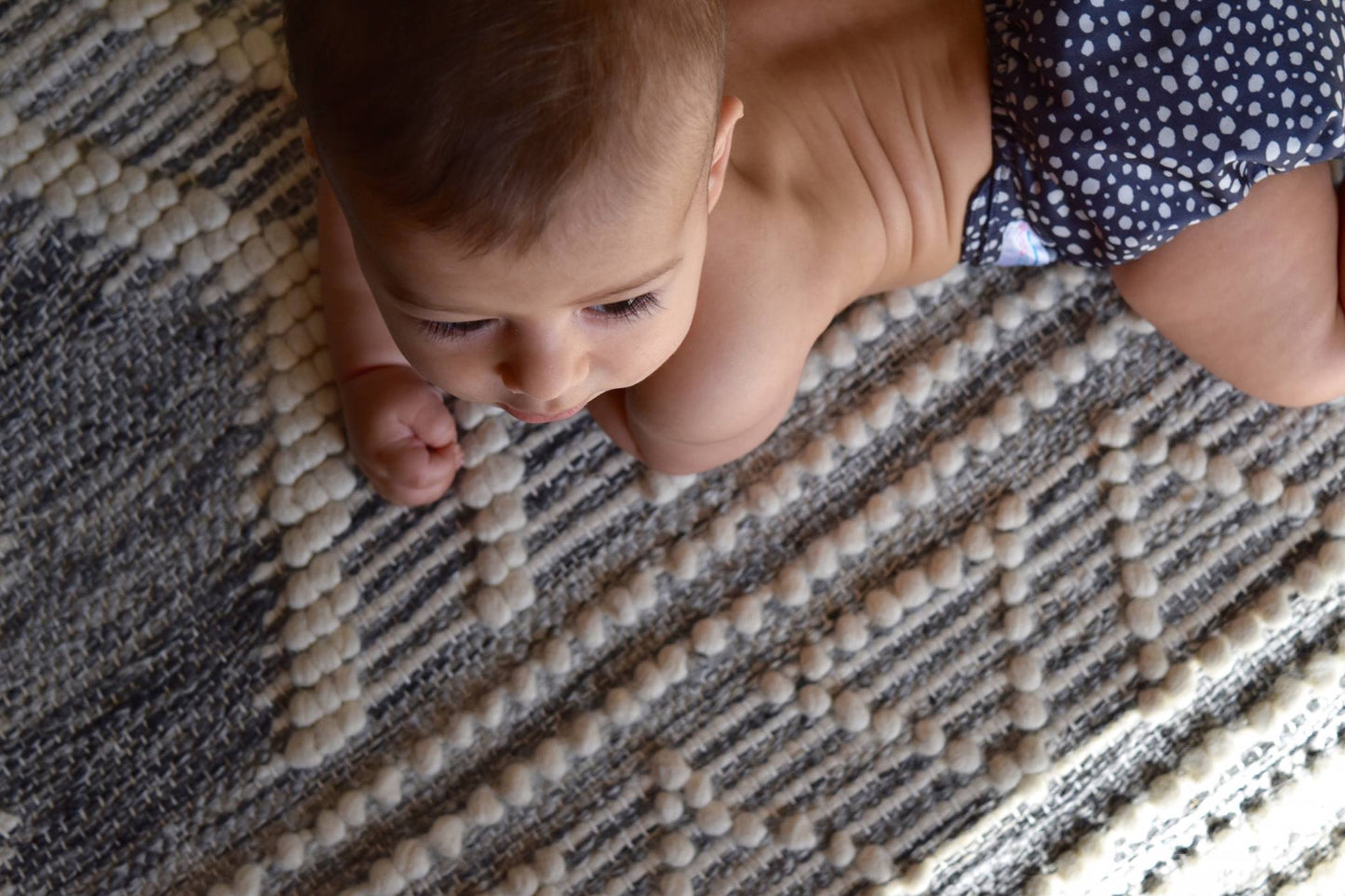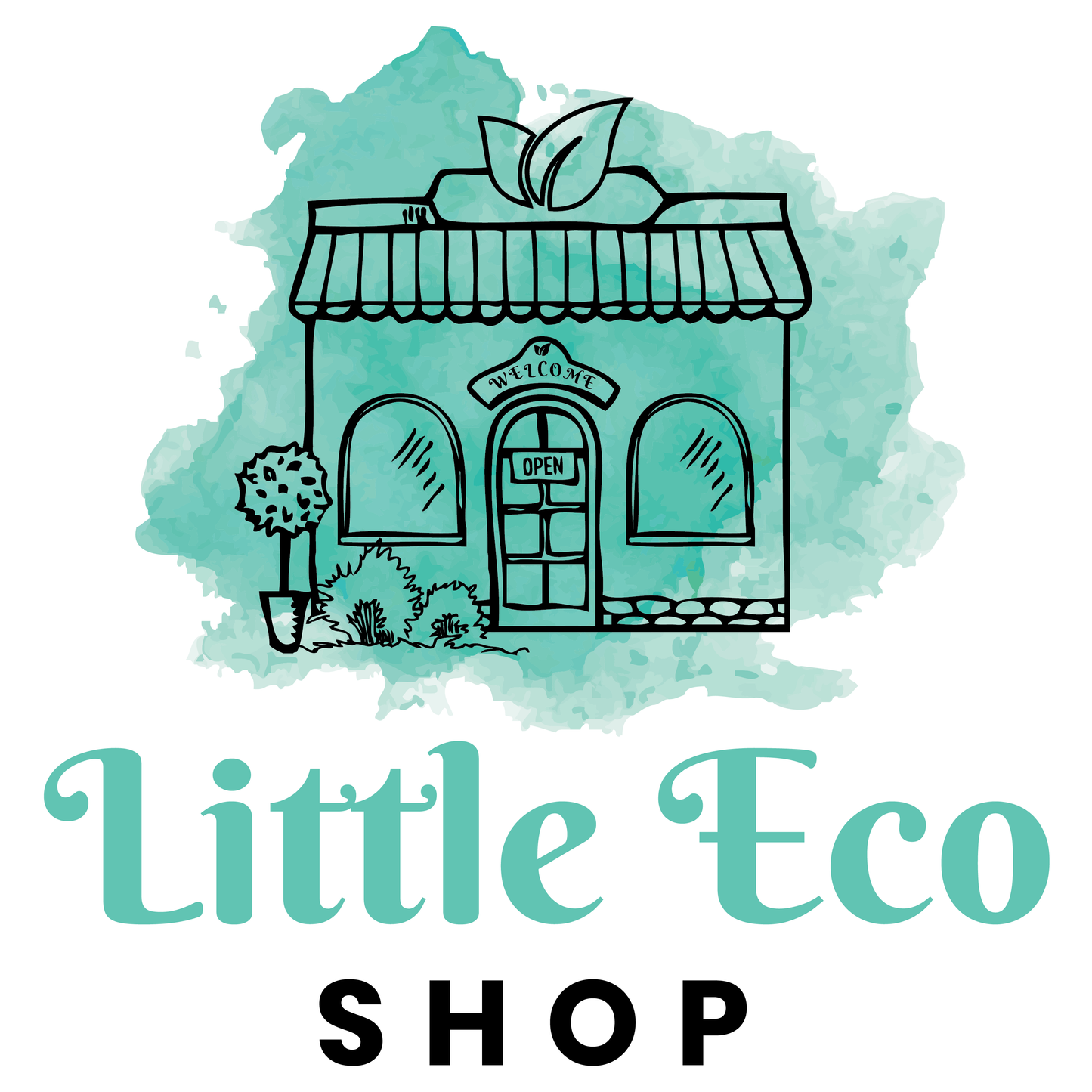
With planet earth veering in the direction of uninhabitable, the enormity of our children’s environmental impact, and ours as parents, is concerning. Raising just one child for one year produces 58.6 tonnes of carbon. To put that figure into perspective, the average car produces a “measly” 2.4 tonnes per year in comparison. And then there are all the tiny baby things that are regularly soiled, outgrown, and discarded, piling up in a landfill near you. It’s no shocker that an ever-growing population will intensify the ecological mess we are in. This worry is compounded by concern for our children and the challenges they might face on a changing planet. While we’d quite literally never trade our children for the world, there are things we can do to reduce our family’s environmental burden and help create a cleaner, safer earth for our babes.
Rethink reusable
The cloth nappies of our parents’ era were a slog. The absorption and lingering smell were crappier than what our tooshes filled them with, and cloth diapering was an endless process of soaking, wringing, and trying to get the blasted things dry. Innovations in fabric tech have meant that modern cloth nappies (MCNs) are well-fitting, mega-absorbing wonders, that can be customised with booster inserts if your child is a heavy wetter. Soiled MCNs simply sit in a bucket or wet bag until wash time and go through a cold rinse cycle before the regular wash cycle. They are then hung to dry or tumble-dried on low heat if you need them in a hurry. Easy peasy.
It takes 1500 litres of crude oil to make enough disposables for one child from birth to toilet trained. Disposables require ten times the water that you’d need to wash reusables for the entire time your child wears them, and then the disposables sit in landfill creating emissions for 500ish years. Even ‘eco’ disposables aren’t perfect and need to be composted correctly to create any meaningful reduction in environmental impact. MCNs can be passed down and reused numerous times, donated to charities once you are finished with them, and recycled or repurposed once no longer useful. Our range of EcoNaps MCNs, wet bags, swim nappies and change mats have been created with the earth in mind and come in the most beautiful designs imaginable. They’re also ALL currently available with 20% off with code ‘ECONAPS20’. *valid until August 31 2022.
Pop some tags
Shunning row upon row of department store kids wear and thrifting the same labels at a fraction of the price makes sense for your wallet as much as it makes sense for the planet. The fashion industry contributes around ten percent of global emissions, as well as being infamous for environmental pollution and human rights abuses. We fuel their abysmal practices every time we buy new clothing. And because our kids outgrow or destroy their clothes at an alarming rate, we’re contributing more heavily during their younger years. Be sure to outsmart the outgrow-discard-replace trap during baby’s first years with these nifty bodysuit extenders which will extend the length and the life of your baby’s bodysuits.
Sure, there are times when you might like to buy some fresh threads for your littles – be it the odd special occasion or photo shoot – but there is no sense in buying all new, all the time, when kids absolutely decimate their wardrobe. Their clothes are essentially expensive smocks for catching food and wiping greasy, paint-stained fingers on, and not even industrial strength bleach is going to get those stains out. Save your wallet and your sanity and pick up your kids’ clothes for an absolute steal at op shops. When every second babe is rocking a Country Road logo, dare to go against the grain - the thrill of the hunt, and of doing right by mother earth, will have you hooked.
Whip it out/whip it up
There is no one, all-supreme method of feeding your kids. Modern parents face a raft of challenges in raising children, and sometimes we need the convenience of formula or ready-made foods – other times they’re plain lifesaving. Environmentally speaking, though, the longer mums can breastfeed, if able, and the more meals we can whip up for our kids at home, the better our planet will fare, avoiding the emissions and plastic use involved in formula and packaged food production and transport. One study found that in the Asia Pacific region alone, the production of milk formula contributed 3 million tonnes to greenhouse gas emissions in 2012. This is about the equivalent of driving a car for 11 billion kilometres.
Handy reusable containers and food pouches can give you the convenience of packaged baby foods and snacks when out and about, while saving you money. If you choose to bottle feed, consider glass baby bottles as an alternative to plastic, as glass can be endlessly recycled and doesn’t require chemical processing during manufacture.
Retro playtime
As a busy parent, the allure of caving to your child’s pleas for the latest plastic plaything is too real. Heck, you want to get your shopping done in peace and give the kids a break from screens – we get it! But plastic toys are a huge burden on the environment. They have shorter lifespans than wooden and metal alternatives, and they’re virtually impossible to recycle. Given that most plastic toys are composed of a blend of different materials, and the recyclable components can’t be separated out, they’re a hop, skip and a jump away from the garbage heap.
In addition, the chemicals used to create plastic toys are problematic for the environment and children’s health. Phthalates, added to plastics to make them soft and flexible, have been linked with birth defects, cancer, and diabetes in people, and are toxic to marine ecosystems.
We advocate a return to 90s parenting when it comes to playtime – send those kids outside and let them get bored! Today’s kids are constantly overbooked, overstimulated, and bombarded with LED screens – their growing brains need a break! We know that outside play provides a raft of benefits, including reduced stress and improved gut health, while too many playthings can create stress and overwhelm. When kids have less toys, they naturally take better care of what they have, and build resourcefulness and problem-solving skills as they learn to share and do more with less.
When it is time to spoil the cherubs, think outside the box. Check out vintage shops for cool toys from yesteryear, ask family and friends if they have any unwanted goodies, and look for wooden items that will stand the test of time, and nature craft activities, like our SunPrints, Flower Presses and Homemade Paper Kits, which are far more engaging and educational than static plastic items.